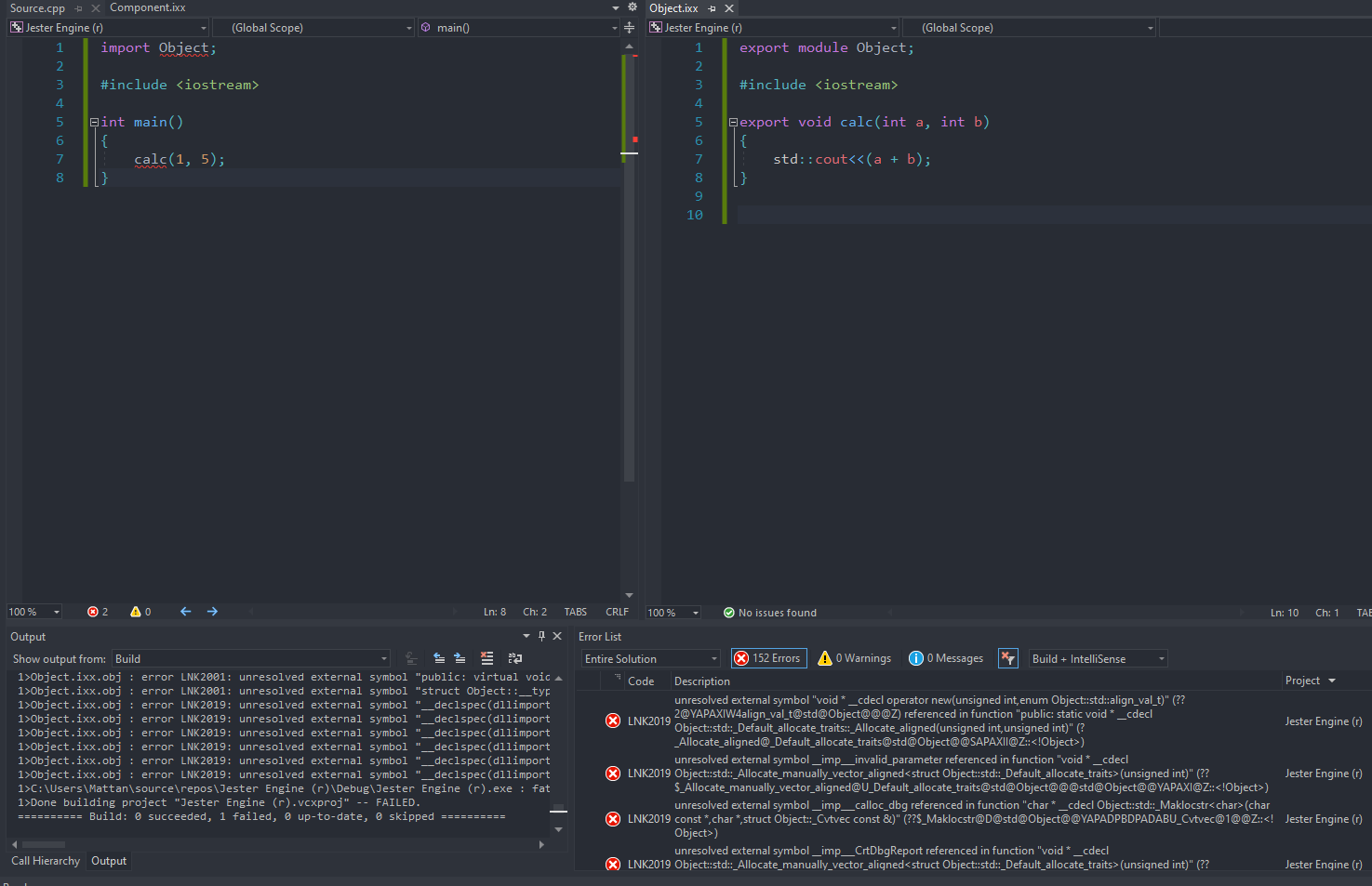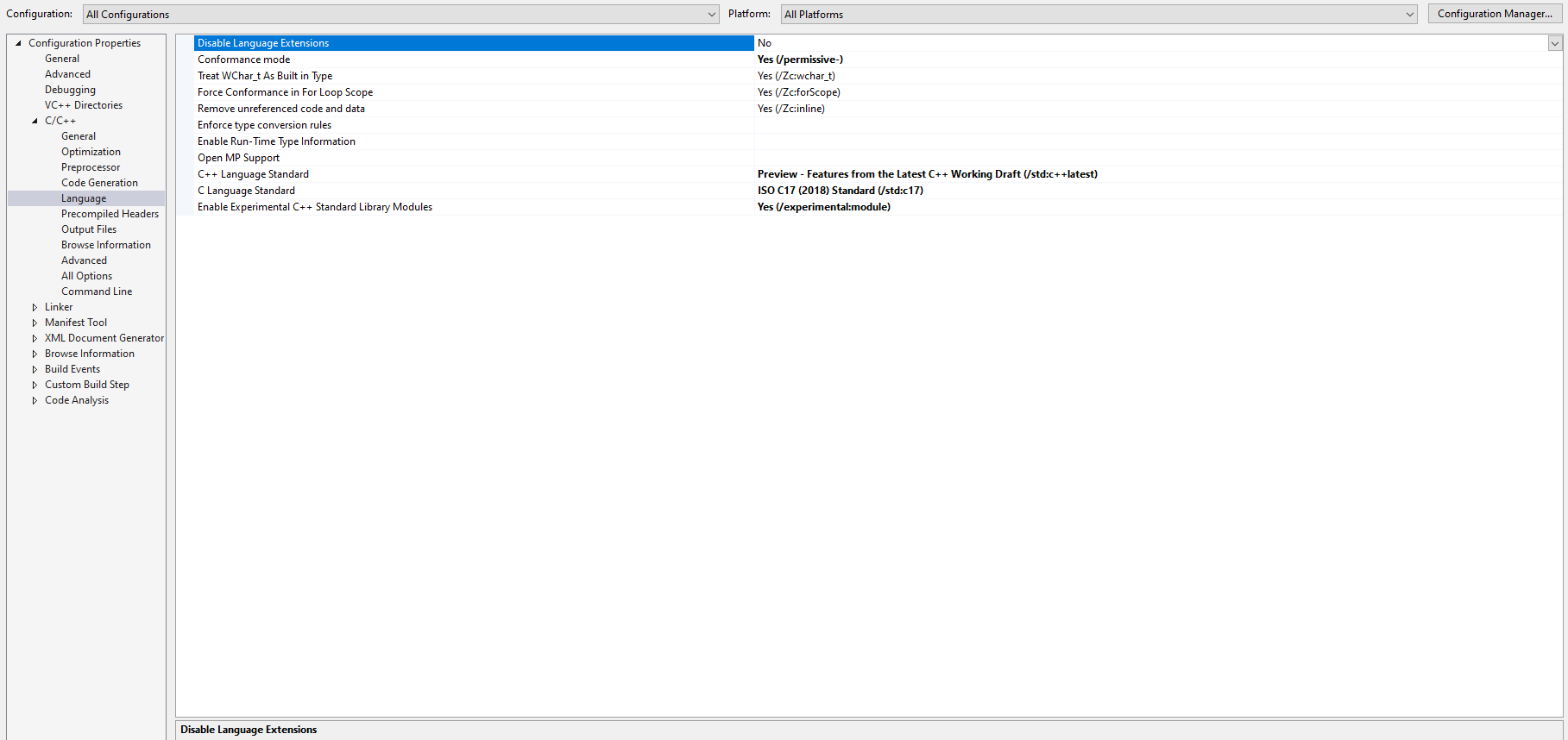I'm trying to rebuild a project of mine in C++ 20 using modules to reduce dependencies and compilation times. I tried importing some modules, and I'm able to do so, yet Visual Studio marks the importation statements as undefined: "Could not find module file for...". Although it marks it as wrong, I'm still able to compile and run the imported functions (although it doesn't allow me to compile a function if it requires a separate #include found only in the module but not the .cpp file it imports to, giving me a linker error). I followed Microsoft's documentation closely and was able to utilize modules on an earlier project and never met any of these problems then, and I made sure to reestablish the same configurations in this project yet this happens.
I'm not really sure what other information I could provide, but please ask if any is necessary. Any help would be appreciated
Works
import Object;
#include <iostream>
int main() {
calc(1, 5);
}
export module Object;
export int calc(int a, int b) {
return a + b;
}
Doesn't Work
import Object;
#include <iostream>
int main() {
calc(1, 5);
}
export module Object;
#include <iostream>
export int calc(int a, int b) {
return a + b;
}
As you can see, there is multiple linking error:

Either way, VS marks it as an error
Edit
By putting the #include above the module export statement the code compiles, but VS still marks it as an error. Although importing headers such as <iostream> or exporting classes doesn't work. So I'm able to compile, but only certain things, and VS always marks it as wrong

